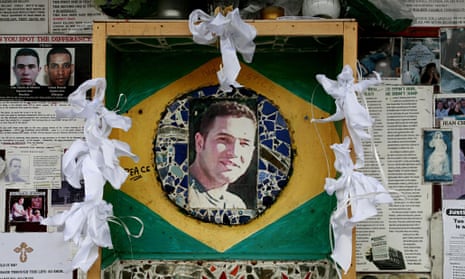Minutes after the prime minister refused to rule out leaving the European convention on human rights, the court that hears complaints under the convention announced that it is to consider two high-profile appeals against the UK government. Defeats for the government in either case – or in a third, which is to be heard next week – would strengthen the arguments of those who say that leaving the convention is the only way to achieve the government’s declared objectives.
The first case involves “whole-life tariffs” – sentences of life imprisonment imposed on defendants who are told that they will never be released from prison. In February, a chamber of seven judges at the European court of human rights rejected a complaint by Arthur Hutchinson, 73, who had been sentenced to spend the rest of his natural life behind bars for the murder in 1983 of three members of a Sheffield family and the rape of a young woman.
The court took into account a ruling by the court of appeal a year earlier, in which the lord chief justice, Lord Thomas of Cwmgiedd, was able to show that “the law of England and Wales … does provide an offender hope, or the possibility of release, in exceptional circumstances” – just as the Strasbourg court had demanded in an earlier case.
In dismissing Hutchinson’s claim, the human rights court was seen as engaging in the sort of dialogue with the UK’s courts that the justice secretary, Michael Gove, wants to encourage. Now, however, a panel of five judges at Strasbourg has granted a request by Hutchinson’s lawyers that his case should be heard by a grand chamber of 17 judges.
The other UK case referred to the grand chamber this week involves three men who attempted to carry out suicide bombings in the London Underground on 21 July 2005. They were sentenced to 40 years in prison. A fourth man was sentenced to 10 years, reduced to eight on appeal, for assisting one of the bombers.
Last December, the human rights court ruled that there had been no violation of their right to a fair trial. The three bombers had been refused access to a lawyer initially so they could have “safety interviews” – urgent interrogations carried out with the aim of protecting life and preventing serious damage to property. The fourth defendant had complained about the admission at trial of statements he had made during initial police interviews.
Although it’s far from common for applicants to be granted a second hearing by the human rights court, there is no reason to suppose that judges sitting in grand chamber will reach a different conclusion from their colleagues in the seven-person chamber. Cases are referred to the grand chamber if they raise serious questions affecting the interpretation or application of the convention or serious issues of general importance.
The third case, to be heard next Wednesday, involves the shooting of Jean Charles de Menezes by police officers investigating the 21/7 bombers. Lawyers for his family complain that the failure to prosecute individual officers for the shooting breached Menezes’s rights under article 2 of the human rights convention. This has been interpreted as requiring accountability for deaths caused by agents of the state. The case was referred direct to the grand chamber without a chamber hearing. It will consider the test used by the Crown Prosecution Service.
The decision to refer the first two cases to the grand chamber was taken on Monday, before the prime minister made it clear that the option of leaving the human rights convention remained on the table. The decision in the Menezes case was taken last December. So it would be fanciful to suppose that the court is trying to send David Cameron any sort of message. There is no doubt that all three cases involve serious issues of general importance.
But Cameron must now decide what message he wants to send to Strasbourg. Gove has been told to proceed on the basis that the UK will not leave the human rights convention. He is devising a carefully calibrated package of reforms based partly on diplomacy and partly on giving greater leeway to judges in the UK. That remains government policy. But Cameron seems determined to show the rightwing of his party that he’s no pushover.
And the Strasbourg judges? It’s their job to close their ears to all of this and decide all three cases in the same way as they would decide any other.

